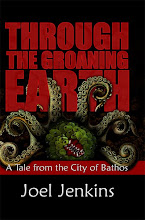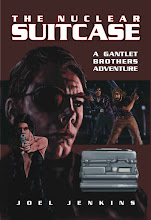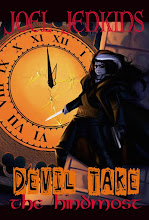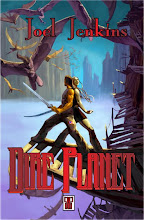The rookie cop, the experienced and
jaded cop, the crooked cop, the gung-ho cop, the idealistic cop, the
buddy cops, the stupid cop, the brilliant detective, the angry
sergeant, the cop striving for redemption. What are these? Certain
professors of literature, and many a movie or book reviewer would say
they are clichés or stereotypes. And we all know that cliches and
stereotypes are bad, so as authors we should avoid them like the
plague (hey, that turn of phrase qualifies as a cliche), right?
Not so quick, I say. If all these
variations on the cop character are cliches—and they have been used
many times and many ways—what does an author have left work with?
Maybe an author should abandon the idea of writing a cop story at
all, maybe tell a story about a struggling farmer. Wait, that's a
cliché, too. How about a wealthy farmer, perhaps a plantation
owner? Hmm, that's been done, as well.
What's an author to do if he wants to
avoid the cries of cliché and stereotype that critics and literature
professors will shout out to the world as soon as they flip through
your book and find a character that's fits a prototype long since
established by other authors who came before you? Probably, the only
thing an author can do to avoid these criticisms is to not write
anything at all. Because, as I've demonstrated above, there are very
few character types that haven't been explored, to some extent,
already.
Anytime
that a critic or a professor of literature wants to justify their
paycheck and prove their intellectual superiority, they can fall back
on the criticism of cliché. It's a lazy criticism which will apply
to almost any work of fiction, so whenever I see a critic use the
term 'cliché' I take their opinion with an extra grain or two
salt—because it's too easy of a critique to make, and because a
cliché' does not necessarily bad fiction make. Criticizing other
people's creative efforts is a situation where the critic often has
no skin in the game. In other words, if they're not creating and
putting their own work in front of other people, they don't run the
risk of subjecting their own creative efforts to the same criticisms
and judgments they so liberally dispense. It's easy to sit on the
sidelines and yell at the players, but things get more personal when
you're in the thick of the game. Only a handful of critics are brave
enough to join the game.
Another, less derogatory term, for the
mold of a tried and true character is an archetype, and this is the
designation that I prefer. A good writer won't shy away from drawing
on these archetypes for the characters in their stories. They provide
a quickly identifiable character for the reader, which won't slow the
pace of the story. Then, gradually, the author may clothe that
archetype with flesh and blood, wonts and desires, and the true
character will reveal itself. Often the true character will be
in-line with the standard archetype, but other times you will find
the character revealing secrets about themselves, which may send your
story reeling in startling directions. Instead of being afraid of
these sudden turns, embrace them, hold on tight and see where the
ride takes you.
Villains will suddenly become
sympathetic as they reveal that they want to change their stripes.
You'll see noble heroes become selfish and fall, you'll see tragedy
turn to triumph, and triumph turn to tragedy, and you will be able to
tell wonderful stories. And all these stories will contain clichés,
because you aren't the first or even the ten thousandth writer to put
pen to paper. Clichés are unavoidable, but you can spin these
archetypes into golden tales that will thrill, entertain and
amaze—even if your local literature professor turns her nose up at
your plebeian efforts.





















No comments:
Post a Comment